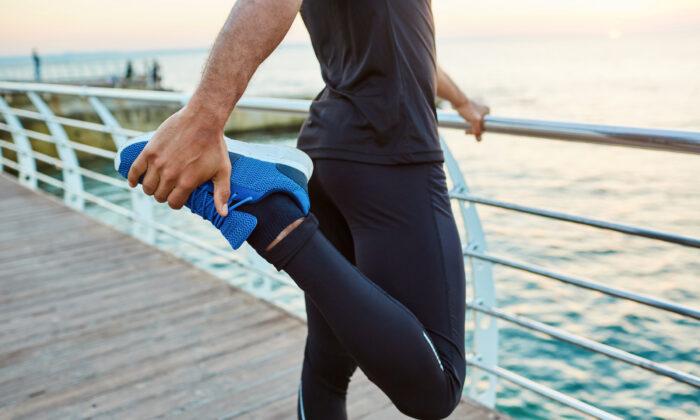What Different Stool Shapes Tell About Your Health
Stool can be classified in seven categories, based on the Bristol stool scale.Category I: Individual pieces of “sheep feces” are in the shape of small pieces of dried and hard balls Category II: Sausage-shaped with bumps on the surface, with the appearance of “balls” connected to each other, or may be thin strips with bumps and cracks Category III: Sausage-shaped with cracks on the surface Category IV: Banana-shaped or snake-shaped with a smooth surface Category V: Smooth fracture surface with unformed soft lumps Category VI: Rough fracture surface, fluffy, and lumpy to mushy Category VII: Liquid/watery
How Many Times Should You Poop a Day?
Part of the function of the large intestine is to recycle water in our body. Food is digested by the stomach, and then a liquid mixture with small chunks of digested food passes through the small intestine for absorption, and the liquid is then forwarded to the large intestine.The large intestine then absorbs the water, thus concentrating the remainder, so the stool is formed, and then excreted.
Having bowel movements between three times a day and once every three days is within the range of what is normal.
According to Dr. Yun-Ni Jong, a Taiwan-based attending physician who specializes in invasive hemorrhoid surgery, if your bowel movements are normal, irritants and carcinogens have no opportunity to cause lasting damage or even prolonged irritation to the intestines. So for these people, the overall probability of cancer decreases.
Having bowel movements once every four days or longer is considered constipation. This means that all the moisture has been absorbed in the gastrointestinal tract, and the stool has become hardened before it is excreted. In this case, the stool falls under categories I and II.
Categories V, VI, and VII are indicative of diarrhea. This has something to do with the irritation of the intestinal tract, and irregular, overly fast motility of the tract.
Eat These 3 Foods to Eliminate Constipation
Dietary fiber is first on the list for good reason. Fiber is the “skeleton” of stool—it can increase the bulk and at the same time soften it.A daily fiber-rich diet is the best way to improve your gastrointestinal health. That’s a diet that consists of foods like brown rice, whole grains, celery, bamboo shoots, water spinach, sweet potato leaves, asparagus, mushrooms, black dates, red jujubes, and other fiber-rich fruits and vegetables.
Dr. Jong had a shortcut tip: “You can’t go wrong choosing whole foods that are dark in color.”
Sherry Yang, nutritionist of Tongxin Medical Center in Taoyuan, Taiwan, said that it’s equally important to limit your low-fiber meals.
Both experts emphasized stems over leaves — some picky eaters will eat their vegetables, but only the soft and tender leaves, eschewing the stems completely. In fact, for those with small appetites and don’t eat much to begin with, making sure you’re getting enough fiber is even more important.
Dr. Jong recalled a time when she was at a buffet restaurant, and witnessed a young woman picking out the small, soft leaves in vegetable dishes and leaving the stalks and stems. She thought to herself, if this young lady kept up her eating habits, in 10 years she would be one of her patients.
Water intake is second, but equally crucial given the numerous benefits of water.
Water can soften stool, prevent its dryness and hardening, and thus improving bowel movements.
Sherry Yang said that she has encountered some patients in the hospital with high-fiber diets, but still have constipation.
One of the reasons is that they do not have enough water intake, she explained, which is what causes the hardening stool.
The third thing to eat is lipids.
Lipids stimulate peristalsis, which are movements in the digestive tract, lubricate the bowels, and aid in bowel movements.
For this reason, it’s recommended that meals not be cooked with no oil at all.
In addition, office workers with largely sedentary lifestyles, people with limited mobility, and other people who have low physical activity, people who often hold back bowel movements and cannot develop a regular pattern, patients on certain painkillers and calcium and iron supplements, or patients on certain medicates, also tend to be prone to constipation.
If the cause is medication, usually you need a medically prescribed stool softener to remedy the constipation. The experts also recommended drinking black date juice.
Supplements and Probiotics for Diarrhea
Supplements and probiotics can nourish the intestines, and help remedy diarrhea.Stools in categories V and VI are forms of mild diarrhea. In these cases, you should pay attention to what you’re eating to figure out what has been irritating your gastrointestinal tract. It may be dairy products for people who are mildly lactose intolerant and unaware, or in many cases, an excess of fried or spicy foods.
In all of these cases, it’s a good idea to drink more water, have more probiotics (not necessarily supplements, even just having some yogurt will do), and eat soluble fibers containing pectin such as oats, apples, and okra.
Some individuals may need probiotic supplements. However, these supplements cannot replace the fiber-rich vegetables that our body needs, the experts added.
Dr. Jong said that she does not restrict her patients’ diets, but she stressed that they still need to add more vegetable fiber to their diet.
“Vegetables are food that stabilizes the stomach and the intestines, and the fiber is like a sponge in the intestines, which can absorb the water, collect fecal residues, and form fluffy stools that are easy to excrete,” she said.
Fiber is also food for the probiotics, which foster good gut microbiome.
Usually, as long as you get enough fiber, there is no need to supplement with probiotics, and the intestinal tract will be in a stable state. The probiotics will prevent diarrhea after one eats spicy food, for instance, because the good bacteria will help soothe the inflammatory substances and decompose carcinogens. Even if you ingest bad bacteria, it will be eliminated by the good bacteria, and the bad bacteria will not stay in the intestines.
Diarrhea could be caused by irritable bowel syndrome (IBS), excess intestinal bacteria, or chronic inflammation of the intestines.
Stool in category VII is a form of severe diarrhea, which can be divided into acute diarrhea or chronic diarrhea. Acute diarrhea is mostly caused by bacterial infection such as salmonella or staphylococcus; chronic diarrhea may be caused by cancer, liver, or kidney diseases.
Sherry Yang pointed out that severe diarrhea can be controlled with fasting. Let the intestines rest, and be mindful about replenishing water and the electrolytes in the body. She advised seeking medical attention, and then waiting for the condition to improve before eating anything.
A Type of Stool May Be Caused by Bad Gut Bacteria
And what about if it’s hard to categorize the stool in any of these seven categories?That is likely due to having an excess amount of bad bacteria in the stomach.
Some people may experience such a bowel movement: A solid stool, then it becomes paste-like.
Dr. Jong explained that generally the first part of a bowel movement is drier because the moisture was absorbed most and absorbed first. Under normal circumstances, with the intestinal tract in a stable state, the water absorption and the fecal movement is balanced, resulting in those normal stool categories.
When the intestinal tracts are not stable, motility is at times fast and other times slow, meaning that the stool formed is staying in your intestines for differing and irregular periods of time, and the water absorption is then irregular too.
It points to autonomic instability and it is also associated with excess bad bacteria in the intestinal tracts. One should pay attention to the bad bacteria, such as Helicobacter pylori. People with this type of regular defecation are prone to diseases such as gastrointestinal ulcers or IBS.





